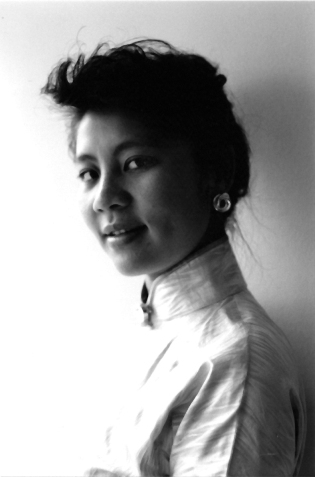The
third novel by Shanghai-born Vivian Yang, Memoirs
of a Eurasian, deals primarily with the story of Mo Mo, the daughter of a
half-Russian, half-Chinese music teacher and an unknown Chinese father. The
novel is a complex one, often shifting between second and first person, all
while spanning four decades of cultural upheaval in China.
The more
enthralling moments of the novel deal with something Yang herself witnessed
growing up: the Cultural Revolution in China and how that affected the
multitudes of people living in Shanghai during that time. In one scene, Mo Mo
explains that the only real entertainment available to the people of Shanghai
were the open stall wet markets. Yang writers that “three ‘s’s characterized a
typical market: smelly, swarming, and strident,” yet these were also places where
“Shanghainese swapped gossip, gave unsolicited advice, and rendezvoused.” Even
as Shanghai gentrifies later in the novel, Mo Mo delights in small pleasures,
such as the fact that “The French Onion soup was now graced with cheese.”
Yang
also has a penchant for clever names and characters. “Condiments” is a
character that works at his father’s food stall, and both his job and
his
function in the story are nicely captured by his nickname, as the
character
serves both as someone who mans the condiments at the store and adds
comic
flavor to the story. Mo Mo’s later love interest is mostly referred to
as “The
Renaissance Shanghainese,” a former elite who retains a sliver of his
former
elegance while being reduced to a lower status in society. He is also
referred
to as “Uncle Fly”; Yang notes that being called “fly” in Shanghai during
the
'70s indicated a person was “an enviable character of superb taste,” a
descriptor befitting of the character. Even Mo Mo’s grandfather, a
Russian
named Kirill Molotov, has a name that suits his position in the story;
Yang explicitly states his connection to the famous Molotov cocktail
weapon, and like that weapon he is thrown into the story and burns out
quickly.

Vivian Yang
However,
there is one glaring flaw with the novel. In the book’s back cover, Yang
mentions that Mo Mo bears “little biographical resemblance” to her. Speaking
personally as a half-Caucasian, half-Korean person, I can tell this is
definitely true -- though Mo Mo and her mother deal with some discrimination,
Yang has a hard time truly getting into the shoes of either multiracial
character. In my own experience travelling with my Caucasian mother in my
Korean father’s homeland, the level of open and subtle hostility was a daily occurrence.
To use a more famous example, Hines Ward, the half Korean NFL player,
experienced severe discrimination from other Koreans until his team won the
Super Bowl.
Most of
the novel is told from Mo Mo’s perspective, and she mostly mentions how much
her exotic appearance helps her move ahead in society, rather than serving as a
something that holds her back. Similarly, her mother Mo Na-di rarely encounters
any racial discrimination or hostility. Given the time period and social upheaval
present in China at the time, this becomes an increasingly glaring omission as
the novel progresses. Mo Mo does mention a few moments of discrimination, but
these never leave any real impact on the character or narrative. Yang
emphasizes female empowerment through the actions of her characters, but her
portrayal of the multiracial leads demonstrates that their ethnic identity is
an afterthought in the story -- odd given that the title of the novel
focuses on the ethnic heritage of the narrator.
Though
the novel follows the traditional coming-of-age story path, there are still a
number of occasions where the narrative surprises. One particularly bold detour
the narrative takes is when a character leaves for Japan and then falls prey to
cannibalism. Yang presents the event with little sensationalism, but the horror
of the moment stands in stark contrast to the tone of the rest of the novel.
The moments of sensuality in the novel, such as between Mo Mo and her swimming coach,
are recounted less as sexual awakenings and more as empowering moments for the
female characters of the story. These moments serve as some of the most
powerful of the story, and demonstrate Yang’s willingness to take her narrative
beyond a comfortable zone.
Noah Cho teaches English at Marin Country Day
School in Corte Madera, California.










Comments